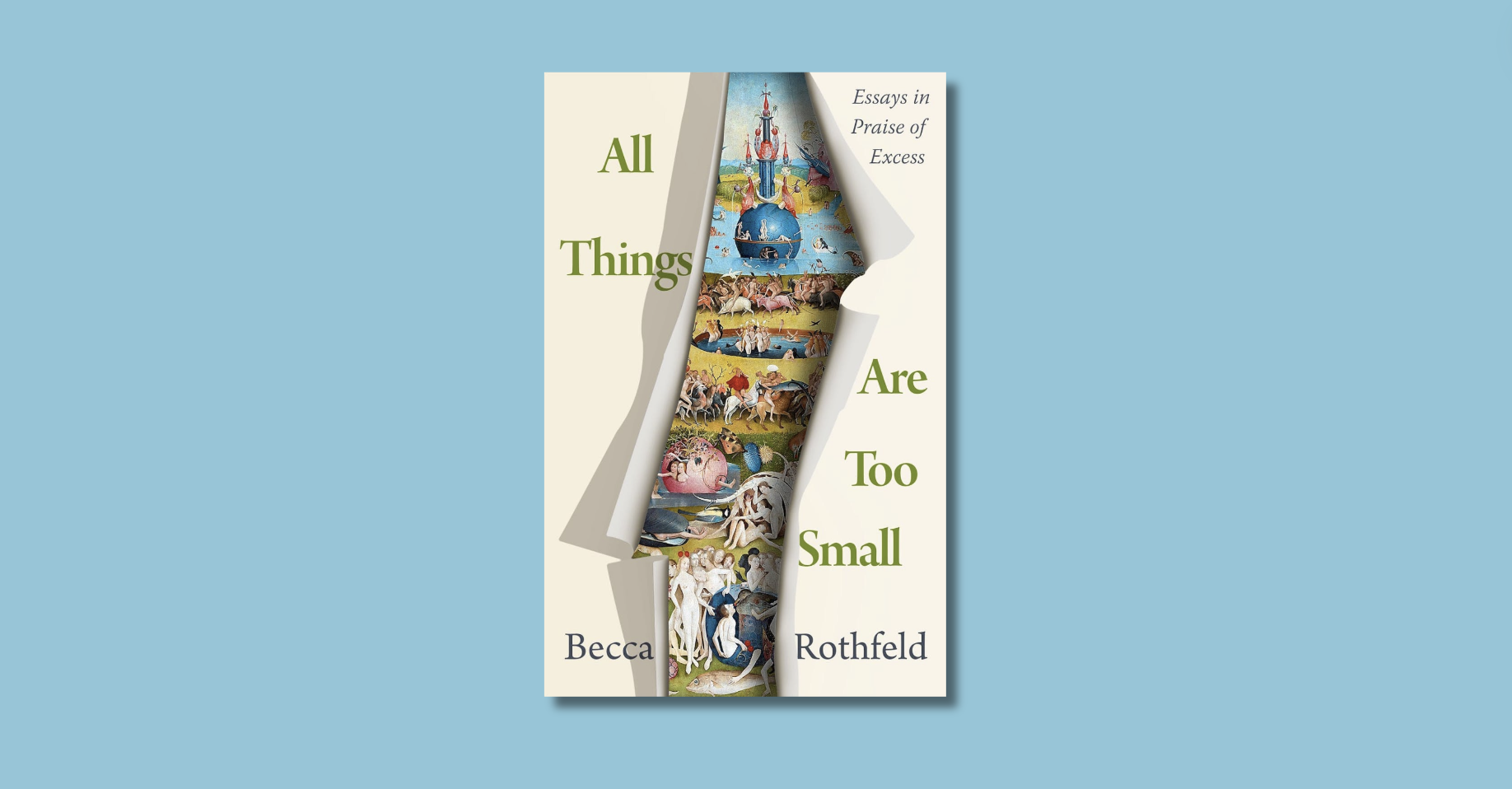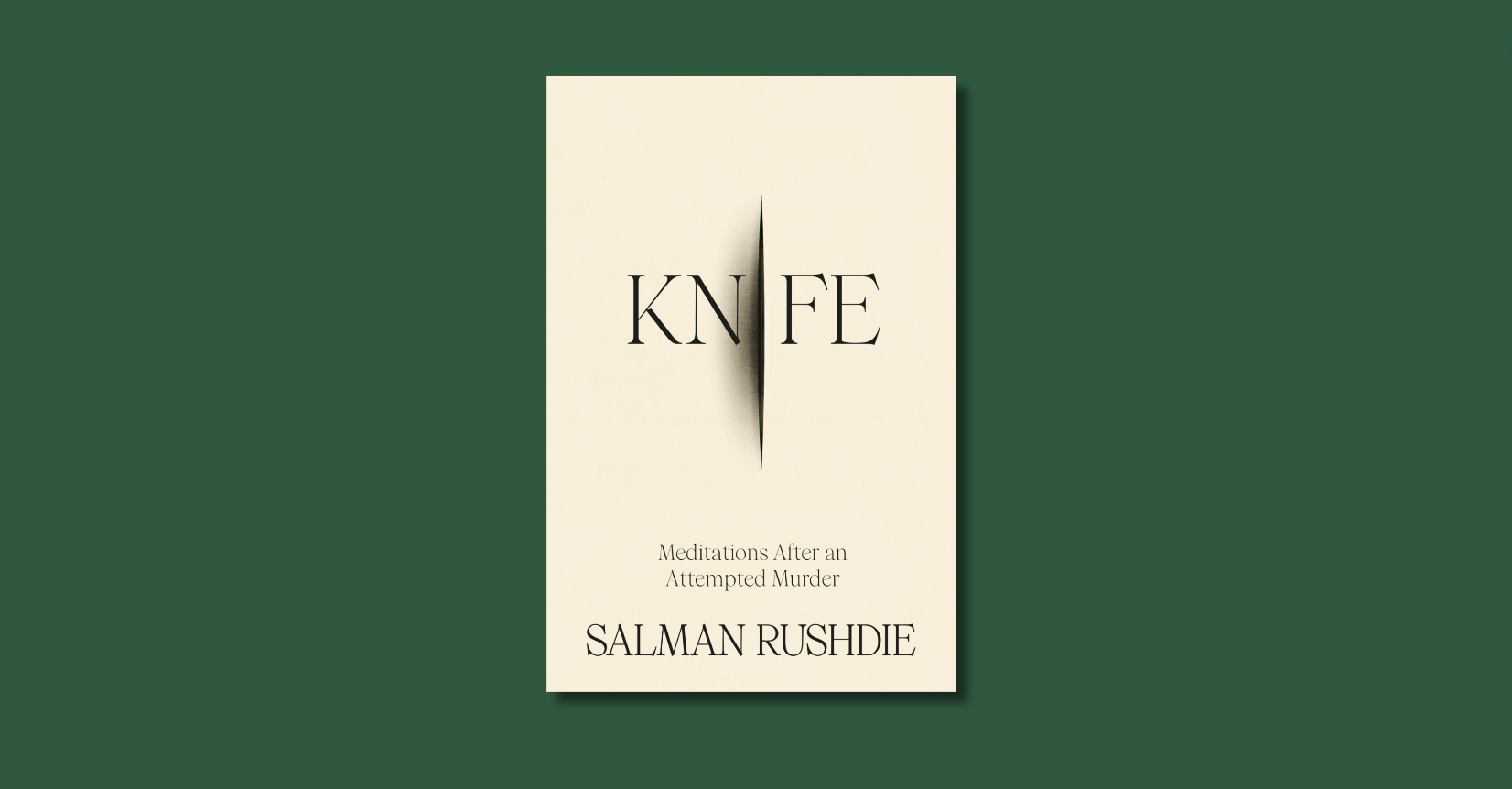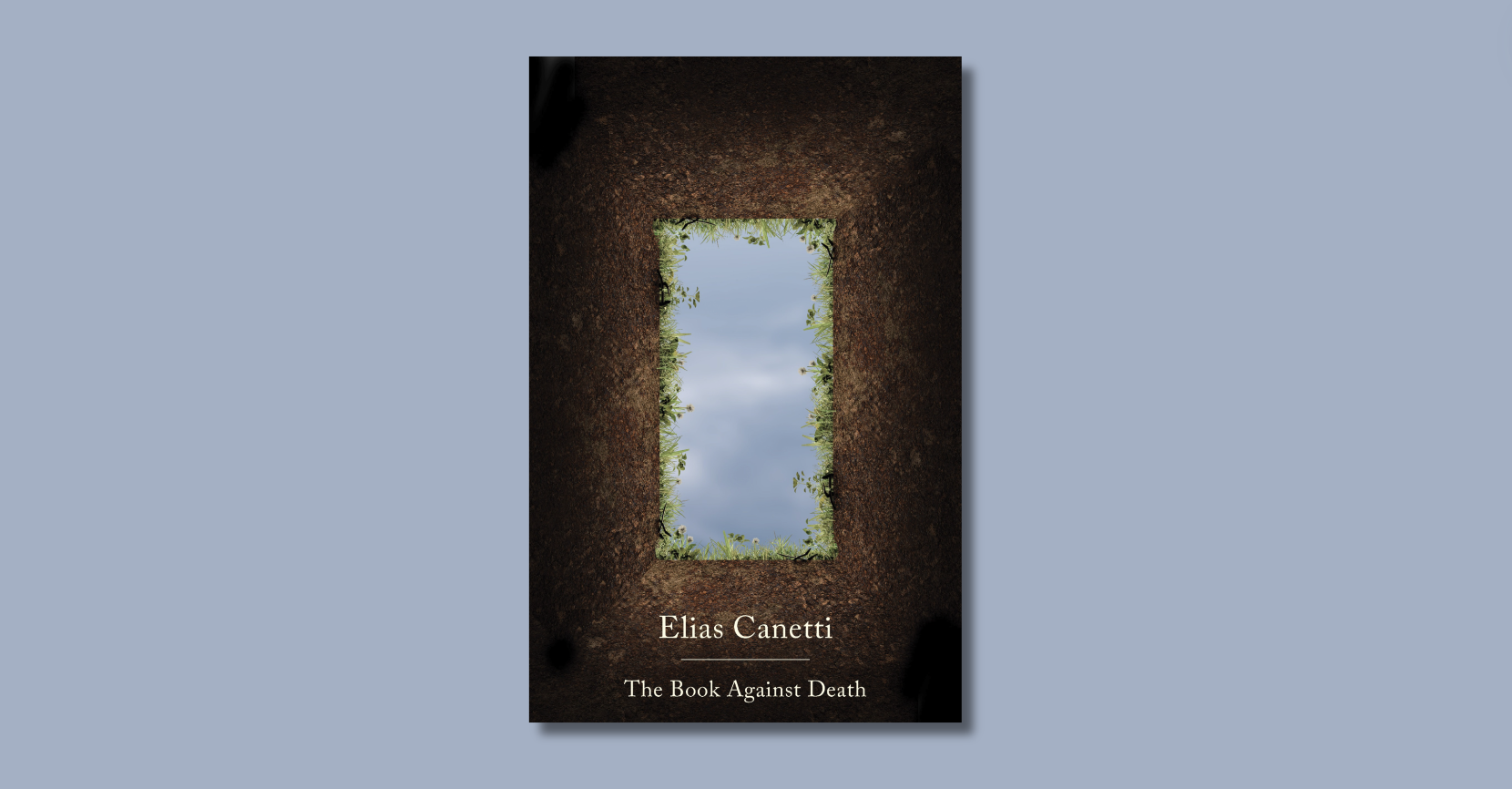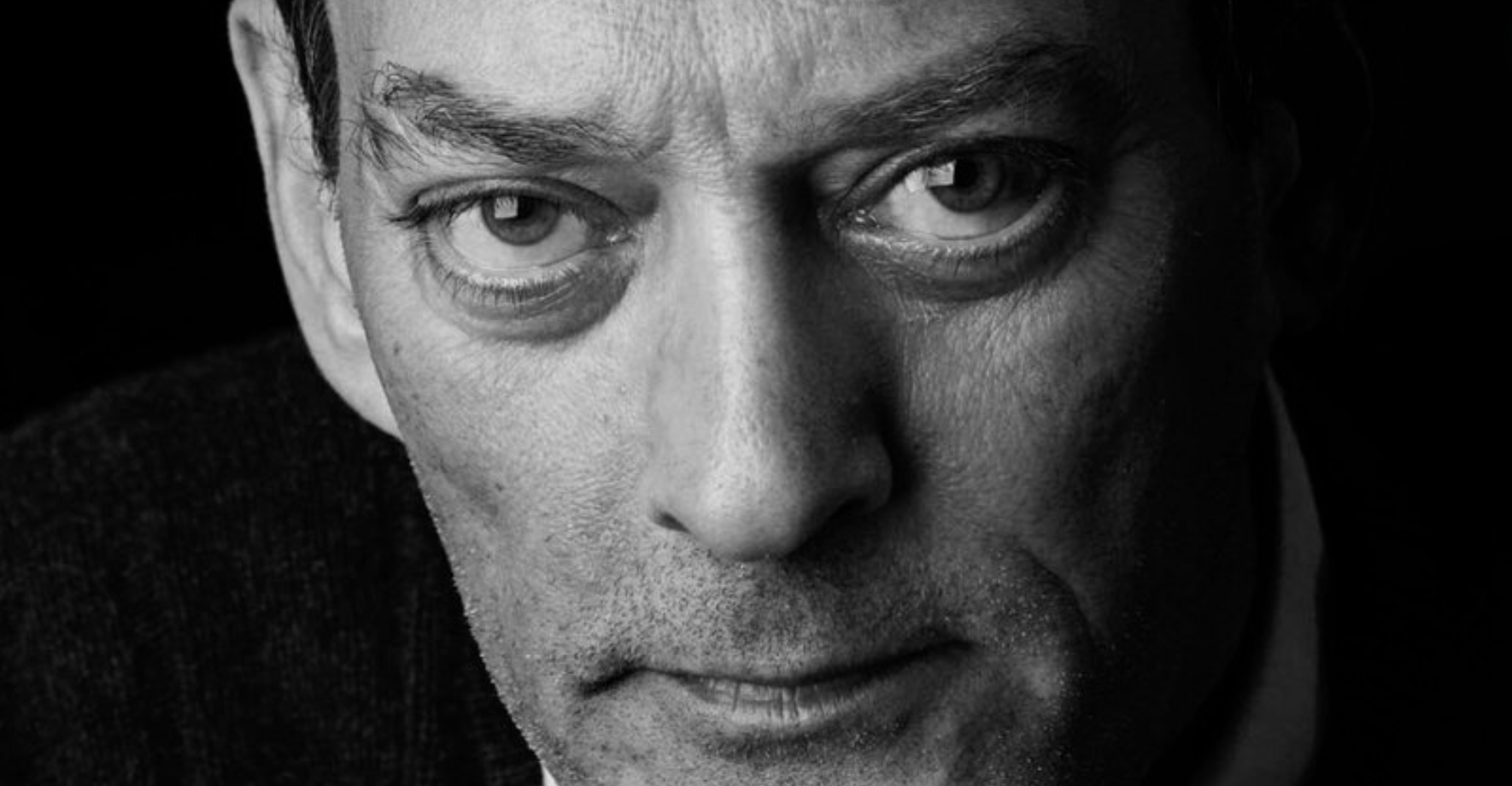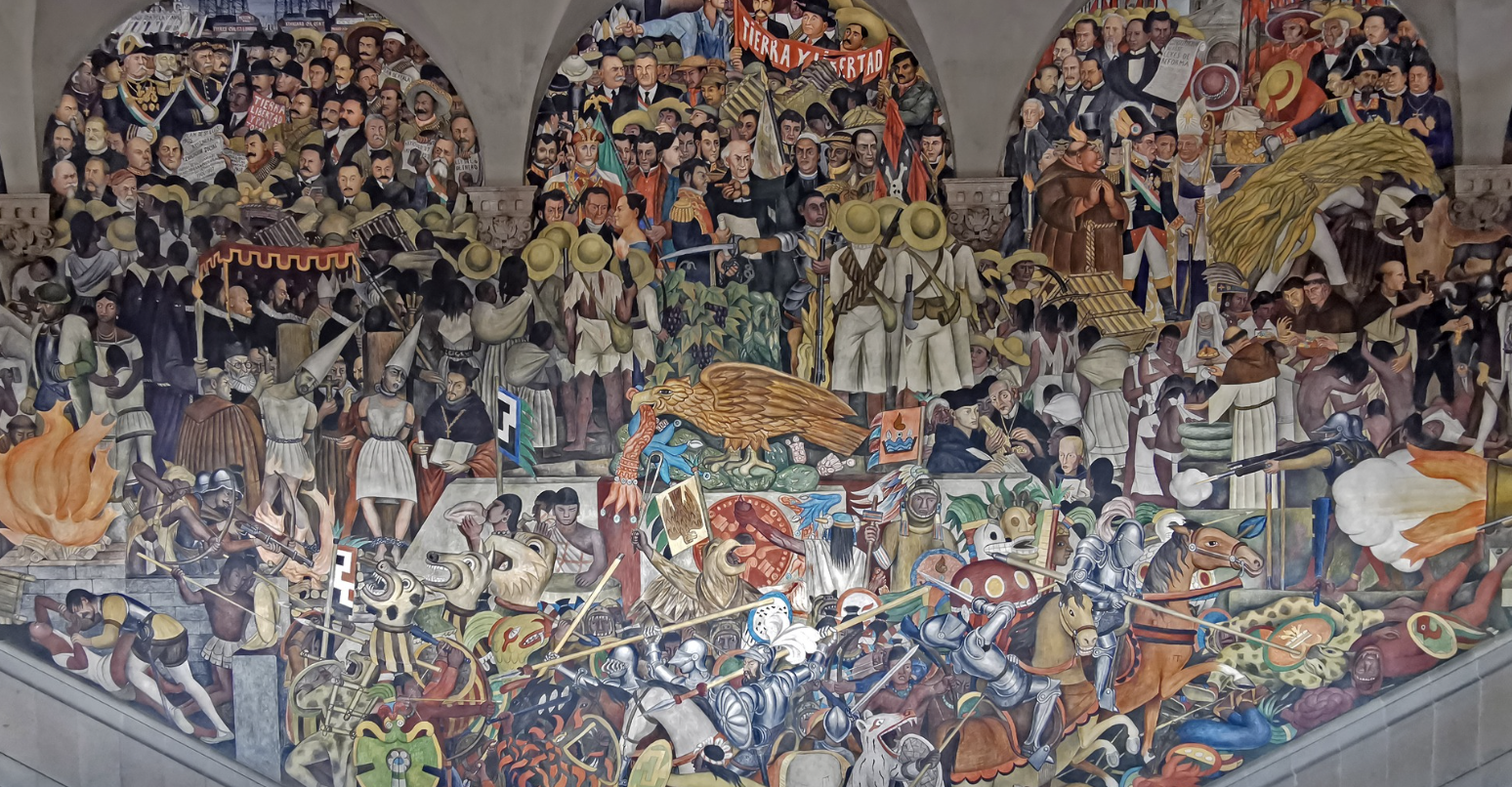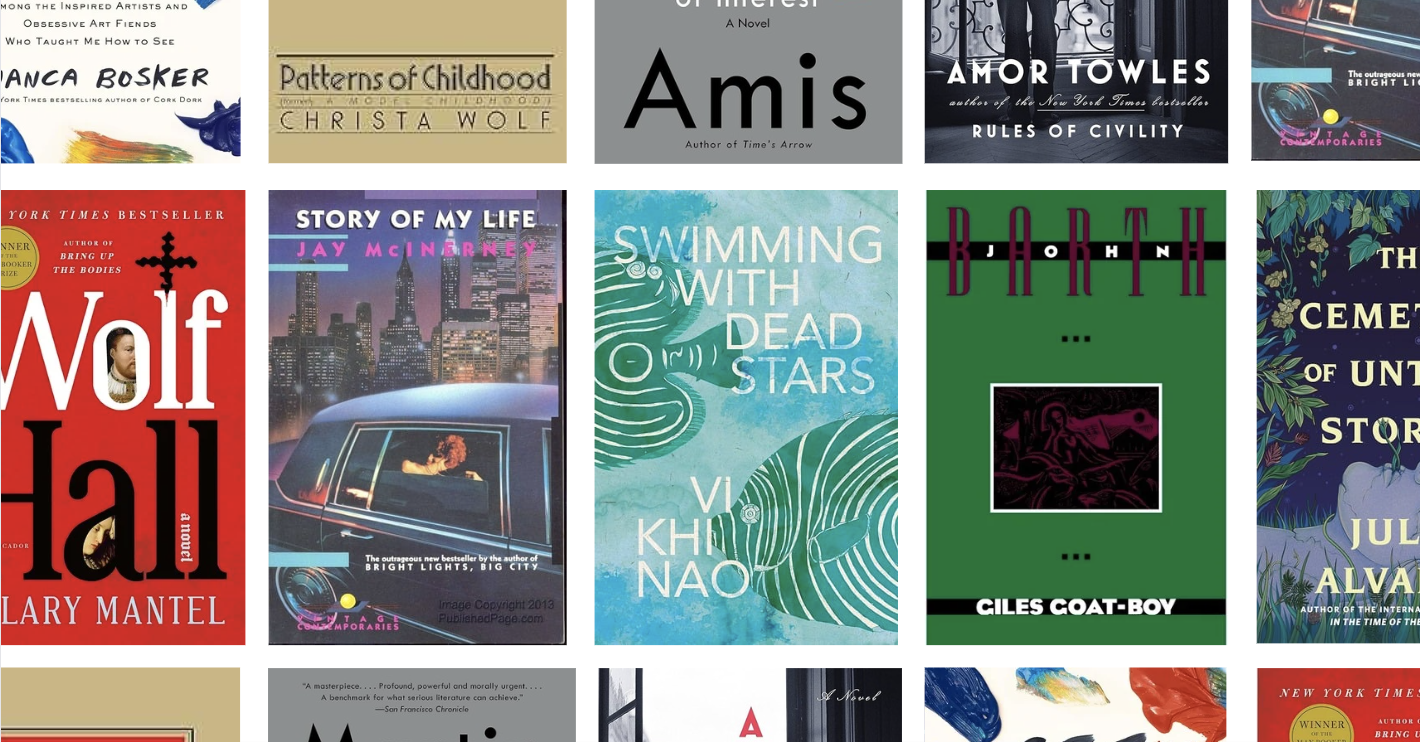The literary story so far in 2011 has certainly been the posthumous publication David Foster Wallace’s The Pale King — though folks like Tea Obreht, Kate Christensen, and Ann Patchett have grabbed their share of the literary limelight. While the second half of 2011 is unlike to produce a media whirlwind to match the one that accompanied The Pale King this spring (or Freedom last year, for that matter), we will see new books from some heavyweights, including Haruki Murakami, Jeffrey Eugenides (both in October), and Don DeLillo (in November).
But, even as fans look forward to books from these favorites, there will undoubtedly be many new discoveries in the coming months as well, some of which, hopefully, we can introduce you to today. The list that follows isn’t exhaustive — no list could be — but these are some of the books we’re looking forward to. At 7,500 words strong and encompassing 66 titles, this is the only second-half of 2011 book preview you will ever need.
July or Already Out:
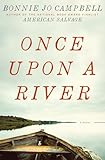 Once Upon a River by Bonnie Jo Campbell: The Cinderella finalist for last year’s National Book and National Book Critics Circle Awards follows up her story collection American Salvage with this novel about sixteen-year-old Margo Crane, a rifle-toting “feral beauty” (says Jaimy Gordon) who embarks on a river journey through rural Michigan, “with only a few supplies and a biography of Annie Oakley,” in search of her mother. Booklist gives it a starred review and calls it a “dramatic and rhapsodic American odyssey. A female Huckleberry Finn. A wild-child-to-caring-woman story.” Presumably Norton will print more than the 1,500 copies that the unsuspecting Wayne State Press initially printed of American Salvage. Cinderella, indeed! (Sonya)
Once Upon a River by Bonnie Jo Campbell: The Cinderella finalist for last year’s National Book and National Book Critics Circle Awards follows up her story collection American Salvage with this novel about sixteen-year-old Margo Crane, a rifle-toting “feral beauty” (says Jaimy Gordon) who embarks on a river journey through rural Michigan, “with only a few supplies and a biography of Annie Oakley,” in search of her mother. Booklist gives it a starred review and calls it a “dramatic and rhapsodic American odyssey. A female Huckleberry Finn. A wild-child-to-caring-woman story.” Presumably Norton will print more than the 1,500 copies that the unsuspecting Wayne State Press initially printed of American Salvage. Cinderella, indeed! (Sonya)
 The Devil All the Time by Donald Ray Pollock: Former meatpacker and paper mill employee Pollock follows his popular story collection Knockemstiff his debut novel. Set in the 50s and 60s, The Devil All the Time “centers on the convergent lives of a tough but morally-upright young man from Ohio, a pair of serial killers who prey on hitchhikers, and an itinerant, spider-handling preacher and his crippled guitar virtuoso accompanist.” Reviews have begun to trickle in, and they focus, unsurprisingly, on the violence (or lack there of) in the book. (Patrick)
The Devil All the Time by Donald Ray Pollock: Former meatpacker and paper mill employee Pollock follows his popular story collection Knockemstiff his debut novel. Set in the 50s and 60s, The Devil All the Time “centers on the convergent lives of a tough but morally-upright young man from Ohio, a pair of serial killers who prey on hitchhikers, and an itinerant, spider-handling preacher and his crippled guitar virtuoso accompanist.” Reviews have begun to trickle in, and they focus, unsurprisingly, on the violence (or lack there of) in the book. (Patrick)
 Lola, California by Edie Meidav: Edie Meidav’s third novel (the first two are The Far Field: A Novel of Ceylon and Crawl Space) is concerned with questions of parenthood, friendship, and the legacy of the seventies. The year is 2008, and Vic Mahler, 1970s cult leader and current death row inmate, has ten days left before his sentence his carried out. His daughter Lana has been in hiding for some years; her childhood friend Rose, now a lawyer, is determined to find her and reunite her with her father. (Emily M.)
Lola, California by Edie Meidav: Edie Meidav’s third novel (the first two are The Far Field: A Novel of Ceylon and Crawl Space) is concerned with questions of parenthood, friendship, and the legacy of the seventies. The year is 2008, and Vic Mahler, 1970s cult leader and current death row inmate, has ten days left before his sentence his carried out. His daughter Lana has been in hiding for some years; her childhood friend Rose, now a lawyer, is determined to find her and reunite her with her father. (Emily M.)
 Stone Arabia by Dana Spiotta: Dana Spiotta won accolades from formidable quarters with her earlier novels, Eat the Document and Lightning Field, and Stone Arabia has already generated considerable buzz. The novel explores the relationship between a brother and sister–the former a musician who carefully constructs an alternate reality for himself as an artist–the latter who watches, worries, and reflects on the past and the present. Comparisons to Jennifer Egan will prove unavoidable given the related meditations on music and fame/not-fame, but early reports indicate that Spiotta has created something wonderful that is all her own. (Lydia)
Stone Arabia by Dana Spiotta: Dana Spiotta won accolades from formidable quarters with her earlier novels, Eat the Document and Lightning Field, and Stone Arabia has already generated considerable buzz. The novel explores the relationship between a brother and sister–the former a musician who carefully constructs an alternate reality for himself as an artist–the latter who watches, worries, and reflects on the past and the present. Comparisons to Jennifer Egan will prove unavoidable given the related meditations on music and fame/not-fame, but early reports indicate that Spiotta has created something wonderful that is all her own. (Lydia)
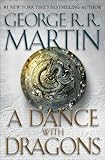 A Dance with Dragons: A Song of Ice and Fire: Book Five by George R. R. Martin: The hit HBO show has made Martin’s “Song of Ice and Fire” the sweeping fantasy epic mostly likely to be discussed at your nearest cocktail party. While the HBO fans may have a ways to go before they’re ready for book five, true fantasy connoisseurs, for whom Martin’s series is the current ne plus ultra of the form, have been eagerly, even impatiently, awaiting this new installment. The latter group will eagerly devour Dragons and begin clamoring for books six and seven, still forthcoming. (Max)
A Dance with Dragons: A Song of Ice and Fire: Book Five by George R. R. Martin: The hit HBO show has made Martin’s “Song of Ice and Fire” the sweeping fantasy epic mostly likely to be discussed at your nearest cocktail party. While the HBO fans may have a ways to go before they’re ready for book five, true fantasy connoisseurs, for whom Martin’s series is the current ne plus ultra of the form, have been eagerly, even impatiently, awaiting this new installment. The latter group will eagerly devour Dragons and begin clamoring for books six and seven, still forthcoming. (Max)
August:
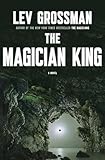 The Magician King by Lev Grossman: In The Magicians, Grossman introduced the magical world of Fillory, where hipster magician-from-Brooklyn Quentin is now a king, along with a few of his friends from magical college. Allusions to Hogwarts and Narnia abound, but no homage is paid, as Grossman’s sequel continues his dark, nuanced look at magical life and the wizards who lead it. Quentin and his friends are lazily soaking up their royal luxury until an enchanted ship takes him to the last place he thought he’d ever return: Massachusetts. (Janet)
The Magician King by Lev Grossman: In The Magicians, Grossman introduced the magical world of Fillory, where hipster magician-from-Brooklyn Quentin is now a king, along with a few of his friends from magical college. Allusions to Hogwarts and Narnia abound, but no homage is paid, as Grossman’s sequel continues his dark, nuanced look at magical life and the wizards who lead it. Quentin and his friends are lazily soaking up their royal luxury until an enchanted ship takes him to the last place he thought he’d ever return: Massachusetts. (Janet)
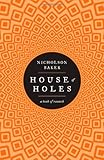 House of Holes: A Book of Raunch by Nicholson Baker: From the publisher: “Brimful of good-nature, wit, and surreal sexual vocabulary, House of Holes is a modern-day Hieronymous Boschian bacchanal that is sure to surprise, amuse, and arouse.” Also described as “fuse-blowing,” “sex-positive,” and “over-the-top.” The book is set in some sort of fantastical pleasure resort where guests “undergo crotchal transfers . . . make love to trees . . . visit the Groanrooms and the twelve-screen Porndecahedron . . . or pussy-surf the White Lake.” From Sam Anderson at the NY Times: “Hoo-boy, people, get ready for this book. It is going to be Talked About.” (Sonya)
House of Holes: A Book of Raunch by Nicholson Baker: From the publisher: “Brimful of good-nature, wit, and surreal sexual vocabulary, House of Holes is a modern-day Hieronymous Boschian bacchanal that is sure to surprise, amuse, and arouse.” Also described as “fuse-blowing,” “sex-positive,” and “over-the-top.” The book is set in some sort of fantastical pleasure resort where guests “undergo crotchal transfers . . . make love to trees . . . visit the Groanrooms and the twelve-screen Porndecahedron . . . or pussy-surf the White Lake.” From Sam Anderson at the NY Times: “Hoo-boy, people, get ready for this book. It is going to be Talked About.” (Sonya)
 The Leftovers by Tom Perrotta: The author of the best-selling satires of suburban life, Little Children and The Abstinence Teacher, Perrotta turns his dark arts to the strange tale of a small town grieving the loss of many of its citizens to a rapture-like event known as The Sudden Departure, which has caused millions of people the world over to suddenly and mysteriously disappear. The science-fiction premise is a departure for Perrotta, who made his bones skewering the mundane realities of American life, but the plot focuses less on the logistical/religious implications of The Sudden Departure and more on the emotional aftermath felt by those left behind. Some join cults, others follow mad prophets, while still more find solace in the age-old pursuits of adulterous sex. We are, in other words, very much in Perrotta Country. (Michael)
The Leftovers by Tom Perrotta: The author of the best-selling satires of suburban life, Little Children and The Abstinence Teacher, Perrotta turns his dark arts to the strange tale of a small town grieving the loss of many of its citizens to a rapture-like event known as The Sudden Departure, which has caused millions of people the world over to suddenly and mysteriously disappear. The science-fiction premise is a departure for Perrotta, who made his bones skewering the mundane realities of American life, but the plot focuses less on the logistical/religious implications of The Sudden Departure and more on the emotional aftermath felt by those left behind. Some join cults, others follow mad prophets, while still more find solace in the age-old pursuits of adulterous sex. We are, in other words, very much in Perrotta Country. (Michael)
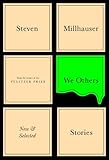 We Others: New and Selected Stories by Steven Millhauser: It’s been three years since Steven Millhauser’s Dangerous Laughter was released to unsurprising acclaim: the foreboding collection of fables continued a winning streak that included a Pulitzer Prize and The Illusionist (adapted from a Millhauser short story, “Eisenheim the Illusionist”). The trend will likely continue with the bric-a-brac We Others: New and Selected Stories. As always with Millhauser, old Austria, carnival grounds, and teenage wastelands will be brought to alarming life. (Jacob)
We Others: New and Selected Stories by Steven Millhauser: It’s been three years since Steven Millhauser’s Dangerous Laughter was released to unsurprising acclaim: the foreboding collection of fables continued a winning streak that included a Pulitzer Prize and The Illusionist (adapted from a Millhauser short story, “Eisenheim the Illusionist”). The trend will likely continue with the bric-a-brac We Others: New and Selected Stories. As always with Millhauser, old Austria, carnival grounds, and teenage wastelands will be brought to alarming life. (Jacob)
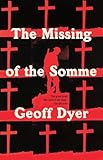 The Missing of the Somme by Geoff Dyer: Dyer’s meditation on the psychic after effects of World War I has been kicking around UK bookstores for nearly two decades, but this August it appears in the US for the first time. Dyer has explained what moved him to write the book: “like the youthful Christopher Isherwood who wanted to write a novel entitled ‘A War Memorial’, I wanted to write a book that was not about ‘the War itself but the effect of the idea of [the War] on my generation’.” What he produced is a powerful work of nonfiction, framed around a road trip he and a few friends took along the Western Front during which he reflected on the Great War’s human toll. “If the Empire’s dead marched four abreast down Whitehall,” he wrote, “it would take them three and a half days to pass the Cenotaph.” (Kevin)
The Missing of the Somme by Geoff Dyer: Dyer’s meditation on the psychic after effects of World War I has been kicking around UK bookstores for nearly two decades, but this August it appears in the US for the first time. Dyer has explained what moved him to write the book: “like the youthful Christopher Isherwood who wanted to write a novel entitled ‘A War Memorial’, I wanted to write a book that was not about ‘the War itself but the effect of the idea of [the War] on my generation’.” What he produced is a powerful work of nonfiction, framed around a road trip he and a few friends took along the Western Front during which he reflected on the Great War’s human toll. “If the Empire’s dead marched four abreast down Whitehall,” he wrote, “it would take them three and a half days to pass the Cenotaph.” (Kevin)
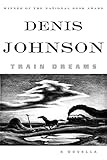 Train Dreams by Denis Johnson: The selected favorite of two out of three PEN/O. Henry Prize jurors in 2003 – David Guterson and Jennifer Egan – Train Dreams is now being released by FSG as a novella (previously published only in The O. Henry Prize Stories 2003). Guterson: “a sweeping tall tale, an homage to Bret Harte, a work of North American magical realism, a yarn of the supernatural variety, and finally the biography of a widower and hermit […] who weeps in church, fears his dreams, and dies in 1968 without having used a telephone. Is it a short story? That’s difficult to say.” Egan: “‘Train Dreams’ was not the one that moved and compelled me the most […] Its protagonist is opaque to the point of cipherdom, and its leisurely, episodic unfolding seems perversely old-fashioned against the sly compression of some other stories. But weeks after reading them, it’s the one that continues to float into my thoughts with the persistence of a dream, or some troubling relic of my own experience. Why?” Egan has her own answer, but you’ll probably want to come up with your own. (Sonya)
Train Dreams by Denis Johnson: The selected favorite of two out of three PEN/O. Henry Prize jurors in 2003 – David Guterson and Jennifer Egan – Train Dreams is now being released by FSG as a novella (previously published only in The O. Henry Prize Stories 2003). Guterson: “a sweeping tall tale, an homage to Bret Harte, a work of North American magical realism, a yarn of the supernatural variety, and finally the biography of a widower and hermit […] who weeps in church, fears his dreams, and dies in 1968 without having used a telephone. Is it a short story? That’s difficult to say.” Egan: “‘Train Dreams’ was not the one that moved and compelled me the most […] Its protagonist is opaque to the point of cipherdom, and its leisurely, episodic unfolding seems perversely old-fashioned against the sly compression of some other stories. But weeks after reading them, it’s the one that continues to float into my thoughts with the persistence of a dream, or some troubling relic of my own experience. Why?” Egan has her own answer, but you’ll probably want to come up with your own. (Sonya)
 Beijing Welcomes You by Tom Scocca: Slate blogger and newly minted Deadspin managing editor Scocca chronicles his years spent in Beijing, observing a city and a culture moving into the global spotlight. The book examines the Chinese capital on the cusp of its global moment, as it readies for the 2008 Olympics. Scocca’s astute and often scathing cultural criticism makes this more than your typical work of cultural anthropology. (Patrick)
Beijing Welcomes You by Tom Scocca: Slate blogger and newly minted Deadspin managing editor Scocca chronicles his years spent in Beijing, observing a city and a culture moving into the global spotlight. The book examines the Chinese capital on the cusp of its global moment, as it readies for the 2008 Olympics. Scocca’s astute and often scathing cultural criticism makes this more than your typical work of cultural anthropology. (Patrick)
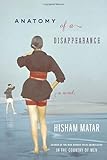 Anatomy of a Disappearance by Hisham Matar: In 1990, Hisham Matar’s father, Jaballa Matar, was kidnapped in Cairo and extradited to Tripoli as a political dissident. Since then, Matar’s family has endured a special hell of loss and uncertainty–scant news punctuating long periods of silence–which the novelist draws upon in his new novel (already out in the UK). A meditation on family relationships, personal loss, and politics as they play out in the life of a young man with a disappeared father, initial reviews indicate that Matar’s new novel more than fulfills the promise of his Man Booker shortlisted title, In the Country of Men. (Lydia)
Anatomy of a Disappearance by Hisham Matar: In 1990, Hisham Matar’s father, Jaballa Matar, was kidnapped in Cairo and extradited to Tripoli as a political dissident. Since then, Matar’s family has endured a special hell of loss and uncertainty–scant news punctuating long periods of silence–which the novelist draws upon in his new novel (already out in the UK). A meditation on family relationships, personal loss, and politics as they play out in the life of a young man with a disappeared father, initial reviews indicate that Matar’s new novel more than fulfills the promise of his Man Booker shortlisted title, In the Country of Men. (Lydia)
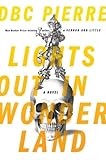 Lights Out in Wonderland by DBC Pierre: Caramelized, milk-fed white tiger cub with borlotti beans & baby root vegetables, anyone? Such are the flavors of Lights Out in Wonderland, the third novel from DBC Pierre, who won the Booker Prize in 2003 for Vernon God Little. Wonderland is a satire on the obscenity and decadence of late capitalism, with a plot and verbal flare as baroque as its subject. One blurb from across the pond promises a “sly commentary on these End Times and the entropic march towards insensate banality.” British reviews have been mixed—depending, it would seem, on the reviewer’s appetite for the rococo. (Emily W.)
Lights Out in Wonderland by DBC Pierre: Caramelized, milk-fed white tiger cub with borlotti beans & baby root vegetables, anyone? Such are the flavors of Lights Out in Wonderland, the third novel from DBC Pierre, who won the Booker Prize in 2003 for Vernon God Little. Wonderland is a satire on the obscenity and decadence of late capitalism, with a plot and verbal flare as baroque as its subject. One blurb from across the pond promises a “sly commentary on these End Times and the entropic march towards insensate banality.” British reviews have been mixed—depending, it would seem, on the reviewer’s appetite for the rococo. (Emily W.)
 The Call by Yannick Murphy: Yannick Murphy, who bewitched me with her short story “In a Bear’s Eye” and later, with her novel Signed, Mata Hari, brings us a new novel, The Call. Composed of diary entries by a veterinarian in New England named David Appleton, The Call records a difficult year in the life of Appleton’s family: a recession, a mysterious stranger, and his son who falls into a coma after a hunting accident. Publishers Weekly says, “Murphy’s subtle, wry wit and an appealing sense for the surreal leaven moments of anger and bleakness, and elevate moments of kindness, whimsy, and grace.” The book sounds more conventional than Murphy’s previous work, but I have no doubt that her distinct prose and point of view will render this story truly original. (Edan)
The Call by Yannick Murphy: Yannick Murphy, who bewitched me with her short story “In a Bear’s Eye” and later, with her novel Signed, Mata Hari, brings us a new novel, The Call. Composed of diary entries by a veterinarian in New England named David Appleton, The Call records a difficult year in the life of Appleton’s family: a recession, a mysterious stranger, and his son who falls into a coma after a hunting accident. Publishers Weekly says, “Murphy’s subtle, wry wit and an appealing sense for the surreal leaven moments of anger and bleakness, and elevate moments of kindness, whimsy, and grace.” The book sounds more conventional than Murphy’s previous work, but I have no doubt that her distinct prose and point of view will render this story truly original. (Edan)
September:
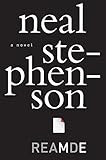 Reamde by Neal Stephenson: Is there anything Neal Stephenson can’t do? Snow Crash is a cyberpunk classic. Cryptonomicon tackled code-breaking and cryptography. Anathem was speculative fiction teeming with holy wars, global catastrophes, mathematics and techno miracles. Now comes Reamde, the story of a draft dodger named Richard Forthrast who makes a bundle selling marijuana and becomes addicted to an online fantasy game that puts him in touch with Chinese gold farmers. Only trouble is, Richard gets caught in the deadly crossfire of his own fantasy war game. Fans who have come to expect a lot of meat on the bones of a Stephenson novel won’t be disappointed by Reamde – which weighs in at 960 pages. (Bill)
Reamde by Neal Stephenson: Is there anything Neal Stephenson can’t do? Snow Crash is a cyberpunk classic. Cryptonomicon tackled code-breaking and cryptography. Anathem was speculative fiction teeming with holy wars, global catastrophes, mathematics and techno miracles. Now comes Reamde, the story of a draft dodger named Richard Forthrast who makes a bundle selling marijuana and becomes addicted to an online fantasy game that puts him in touch with Chinese gold farmers. Only trouble is, Richard gets caught in the deadly crossfire of his own fantasy war game. Fans who have come to expect a lot of meat on the bones of a Stephenson novel won’t be disappointed by Reamde – which weighs in at 960 pages. (Bill)
 River of Smoke by Amitav Ghosh: After Sea of Poppies (shortlisted for the Man Booker in 2008), River of Smoke is the second installment of the Ibis trilogy, which documents the nineteenth century opium trade from production in India to circulation in China. Against the backdrop of the 1838 Opium Wars, Ghosh describes the complex and multifaceted nature of global trade from the micro to the macro; with the travails of his Parsi traders, American sailors, Cornish explorers, and a host of other characters, Ghosh breathes life into the dates and places of history. (Lydia)
River of Smoke by Amitav Ghosh: After Sea of Poppies (shortlisted for the Man Booker in 2008), River of Smoke is the second installment of the Ibis trilogy, which documents the nineteenth century opium trade from production in India to circulation in China. Against the backdrop of the 1838 Opium Wars, Ghosh describes the complex and multifaceted nature of global trade from the micro to the macro; with the travails of his Parsi traders, American sailors, Cornish explorers, and a host of other characters, Ghosh breathes life into the dates and places of history. (Lydia)
 Arguably: Essays by Christopher Hitchens: In what would seem to be one of the more aptly-titled books of the season, the often-argumentative Hitchens’ first new essay collection since 2004 spans four decades, from early work for the New Statesman to recent pieces written for Slate, The Atlantic, The Nation and Vanity Fair. He covers topics ranging from Vietnam to Charles Dickens, from civil rights to radical Islam; exploring, according to his publisher, “how politics justifies itself by culture, and how the latter prompts the former.” (Emily M.)
Arguably: Essays by Christopher Hitchens: In what would seem to be one of the more aptly-titled books of the season, the often-argumentative Hitchens’ first new essay collection since 2004 spans four decades, from early work for the New Statesman to recent pieces written for Slate, The Atlantic, The Nation and Vanity Fair. He covers topics ranging from Vietnam to Charles Dickens, from civil rights to radical Islam; exploring, according to his publisher, “how politics justifies itself by culture, and how the latter prompts the former.” (Emily M.)
 The Art of Fielding by Chad Harbach: Preliminary buzz on this first novel by N+1 cofounder Chad Harbach centered on the staggering advance he managed to procure – an art in itself, in these days of editorial caution. Expectations will be commensurately high, but Harbach’s novel aims squarely at what’s left of the American mainstream – baseball and college – and, at 500 pages, is clearly swinging for the fences. Jonathan Franzen and James Patterson are early fans. And, together, an exhibit for the odd-bedfellows wing of the Blurbing Hall of Fame. Interesting question, though: will women – you know, the people who actually buy novels – read it? (Garth)
The Art of Fielding by Chad Harbach: Preliminary buzz on this first novel by N+1 cofounder Chad Harbach centered on the staggering advance he managed to procure – an art in itself, in these days of editorial caution. Expectations will be commensurately high, but Harbach’s novel aims squarely at what’s left of the American mainstream – baseball and college – and, at 500 pages, is clearly swinging for the fences. Jonathan Franzen and James Patterson are early fans. And, together, an exhibit for the odd-bedfellows wing of the Blurbing Hall of Fame. Interesting question, though: will women – you know, the people who actually buy novels – read it? (Garth)
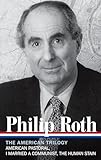 Philip Roth: The American Trilogy (Library of America): If Roth lives long enough for the Nobel Prize committee to recognize that he, despite his unfortunate Americanness, is probably the world’s greatest living writer, his long-overdue laurels will be due to this brilliant trilogy of novels, American Pastoral, I Married a Communist, and The Human Stain. After a bit of a fallow period in the 1980s and early 1990s, Roth, once the enfant terrible of American letters, came roaring back with these three novels, which serve as meditations on three very different brands of subversion in American life. Roth has written some bad books in his day, and lately has shown a tendency to say foolish things in public (like, for instance, that he has given up on reading fiction), but this is Roth at his best: angry, incisive, and occasionally hilarious. (Michael)
Philip Roth: The American Trilogy (Library of America): If Roth lives long enough for the Nobel Prize committee to recognize that he, despite his unfortunate Americanness, is probably the world’s greatest living writer, his long-overdue laurels will be due to this brilliant trilogy of novels, American Pastoral, I Married a Communist, and The Human Stain. After a bit of a fallow period in the 1980s and early 1990s, Roth, once the enfant terrible of American letters, came roaring back with these three novels, which serve as meditations on three very different brands of subversion in American life. Roth has written some bad books in his day, and lately has shown a tendency to say foolish things in public (like, for instance, that he has given up on reading fiction), but this is Roth at his best: angry, incisive, and occasionally hilarious. (Michael)
 Lost Memory of Skin by Russell Banks: When Tom Perrotta explored our country’s mercilessness towards sex offenders, he tucked it inside a romance, a dog pill smooshed in cheddar. The resulting Little Children was, while not uncomplicated, fairly easy to swallow. Russell Banks, however, takes on the same subject in Lost Memory of Skin—and as it comes from the unsparing source of Affliction and Cloudsplitter, the pill will go down raw; much of Memory takes place in an encampment of outcast offenders. There is an excellent chance that Patrick Wilson will not appear in this book’s film adaptation. (Jacob)
Lost Memory of Skin by Russell Banks: When Tom Perrotta explored our country’s mercilessness towards sex offenders, he tucked it inside a romance, a dog pill smooshed in cheddar. The resulting Little Children was, while not uncomplicated, fairly easy to swallow. Russell Banks, however, takes on the same subject in Lost Memory of Skin—and as it comes from the unsparing source of Affliction and Cloudsplitter, the pill will go down raw; much of Memory takes place in an encampment of outcast offenders. There is an excellent chance that Patrick Wilson will not appear in this book’s film adaptation. (Jacob)
 Last Man in Tower by Arvind Adiga: Thirty-something Adiga burst onto the literary scene in 2008 with his Booker Prize winning novel The White Tiger, which was described with only a measure of hyperbole as the Invisible Man for modern day India. With his second novel, Adiga continues to mine the implications of India’s rapid modernization. The novel depicts the struggle between Donald Trumpian real estate developer Dharmen Shah, who wants to clear out a crumbling apartment building to make way for a luxury high-rise, and the one insignificant man standing in his way. All of the old building’s residents are on board (they’re set to be generously compensated for finding a new place to live) but Masterji, a retired school teacher, refuses to go, imperiling the construction project and the windfall relocation fees for the building’s residents, and inviting the wrath of his neighbors. (Kevin)
Last Man in Tower by Arvind Adiga: Thirty-something Adiga burst onto the literary scene in 2008 with his Booker Prize winning novel The White Tiger, which was described with only a measure of hyperbole as the Invisible Man for modern day India. With his second novel, Adiga continues to mine the implications of India’s rapid modernization. The novel depicts the struggle between Donald Trumpian real estate developer Dharmen Shah, who wants to clear out a crumbling apartment building to make way for a luxury high-rise, and the one insignificant man standing in his way. All of the old building’s residents are on board (they’re set to be generously compensated for finding a new place to live) but Masterji, a retired school teacher, refuses to go, imperiling the construction project and the windfall relocation fees for the building’s residents, and inviting the wrath of his neighbors. (Kevin)
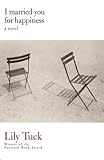 I Married You for Happiness by Lily Tuck: Tuck returns with her first work of fiction since her National Book Award-winning novel The News From Paraguay. I Married You for Happiness tells the story of a marriage in a single night, as artist Nina sits vigil at the deathbed of her mathematician husband Philip, recalling the entire history of their relationship. Publishers Weekly has already weighed in with a starred review that calls the book “breathlessly mannered” and a “triumph of a novel.” (Patrick)
I Married You for Happiness by Lily Tuck: Tuck returns with her first work of fiction since her National Book Award-winning novel The News From Paraguay. I Married You for Happiness tells the story of a marriage in a single night, as artist Nina sits vigil at the deathbed of her mathematician husband Philip, recalling the entire history of their relationship. Publishers Weekly has already weighed in with a starred review that calls the book “breathlessly mannered” and a “triumph of a novel.” (Patrick)
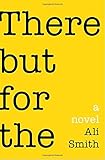 There But For The by Ali Smith: A British literary phenom, Smith sets her third novel (after Hotel World and The Accidental) at the posh London suburban home of the Lee family, who are throwing a dinner party one night when guest Miles Garth goes upstairs and locks himself in a room. While his host, her daughter, an old school friend, and the Lees’ neighbor all try to coax him out, he communicates only via notes passed out under the door, resulting in a game of words as engaging for the reader as for Miles’ unwitting hosts. (Janet)
There But For The by Ali Smith: A British literary phenom, Smith sets her third novel (after Hotel World and The Accidental) at the posh London suburban home of the Lee family, who are throwing a dinner party one night when guest Miles Garth goes upstairs and locks himself in a room. While his host, her daughter, an old school friend, and the Lees’ neighbor all try to coax him out, he communicates only via notes passed out under the door, resulting in a game of words as engaging for the reader as for Miles’ unwitting hosts. (Janet)
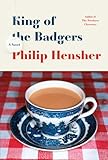 King of the Badgers by Philip Hensher: T.S. Eliot once remarked that Henry James had “a mind so fine that no idea could violate it.” Our review of the English writer Philip Hensher’s celebrated 2008 novel, The Northern Clemency, argued something similar: that aside from much fine writing, there wasn’t a hell of a lot that stayed with you. Then again, Eliot was wrong about James, and maybe down here among the literary mortals, Hensher’s new effort will make us change our mind. Again, the setting is suburban-ish England, but here the clemency is southern. And where its predecessor was structured around family, King of the Badgers broadens the focus to an entire community – one haunted by the disappearance of a girl. (Garth)
King of the Badgers by Philip Hensher: T.S. Eliot once remarked that Henry James had “a mind so fine that no idea could violate it.” Our review of the English writer Philip Hensher’s celebrated 2008 novel, The Northern Clemency, argued something similar: that aside from much fine writing, there wasn’t a hell of a lot that stayed with you. Then again, Eliot was wrong about James, and maybe down here among the literary mortals, Hensher’s new effort will make us change our mind. Again, the setting is suburban-ish England, but here the clemency is southern. And where its predecessor was structured around family, King of the Badgers broadens the focus to an entire community – one haunted by the disappearance of a girl. (Garth)
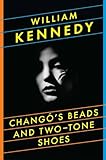 Chango’s Beads and Two-tone Shoes by William Kennedy: William Kennedy, Pulitzer Prize-winning author of the magisterial Albany cycle of novels (including Billy Phelan’s Greatest Game, Legs and Ironweed), now takes us to the Florida bar in pre-revolutionary Cuba, where the journalist Daniel Quinn meets a fellow lover of simple declarative sentences, Ernest Hemingway. After brushes with revolutionaries, crooked politicians and drug-running gangsters, Quinn winds up in Albany as it is engulfed in race riots on the eve of Robert F. Kennedy’s assassination. Hungry fans are sure to rejoice over Kennedy’s first novel in almost a decade. (Bill)
Chango’s Beads and Two-tone Shoes by William Kennedy: William Kennedy, Pulitzer Prize-winning author of the magisterial Albany cycle of novels (including Billy Phelan’s Greatest Game, Legs and Ironweed), now takes us to the Florida bar in pre-revolutionary Cuba, where the journalist Daniel Quinn meets a fellow lover of simple declarative sentences, Ernest Hemingway. After brushes with revolutionaries, crooked politicians and drug-running gangsters, Quinn winds up in Albany as it is engulfed in race riots on the eve of Robert F. Kennedy’s assassination. Hungry fans are sure to rejoice over Kennedy’s first novel in almost a decade. (Bill)
Crossbones by Nuruddin Farah: Nuruddin Farah, recipient of a formidable number of literary prizes, writes beautifully and prolifically about his native Somalia. Exiled in 1976, Farah has returned in recent years to work as a peace broker between factions therein; in Farah’s own words, his writing is a way to “keep my country alive.” His upcoming novel Crossbones completes a trilogy begun with Links and Knots, and describes the specific travails of three family members who are swept up in intra- and international conflicts featuring pirates, religious radicals, and Ethiopian invasion. (Lydia)
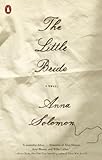 The Little Bride by Anna Solomon: Anna Solomon’s debut novel is about a sixteen-year-old mail-order bride named Minna whose life changes dramatically when she leaves her native Odessa to meet her future husband in America. Set in the nineteenth century, The Little Bride follows Minna to the unforgiving landscape of South Dakota, where she marries Max, a man twice her age, and goes to live with him in a one-room hut with his two grown sons. Solomon, a winner of two Pushcart Prizes, has written what Audrey Niffenegger calls “an intensely imagined book, an elegantly written pocket of forgotten history.” I got my hands on an advance copy of The Little Bride and found it to be unflinchingly vivid, beautifully told, and even a touch sexy. (Edan)
The Little Bride by Anna Solomon: Anna Solomon’s debut novel is about a sixteen-year-old mail-order bride named Minna whose life changes dramatically when she leaves her native Odessa to meet her future husband in America. Set in the nineteenth century, The Little Bride follows Minna to the unforgiving landscape of South Dakota, where she marries Max, a man twice her age, and goes to live with him in a one-room hut with his two grown sons. Solomon, a winner of two Pushcart Prizes, has written what Audrey Niffenegger calls “an intensely imagined book, an elegantly written pocket of forgotten history.” I got my hands on an advance copy of The Little Bride and found it to be unflinchingly vivid, beautifully told, and even a touch sexy. (Edan)
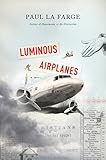 Luminous Airplanes by Paul La Farge: Paul La Farge, the author of two previous novels (Haussmann, or the Distinction and The Artist of the Missing) and one “book of imaginary dreams” (The Facts of Winter, to be reissued by McSweeney’s, also in September) returns with Luminous Airplanes, a book that promises an unusual reading experience: his publisher reports that “the novel, complete in itself, is accompanied by an online ‘immersive text,’ which continues the story and complements it.” The place is America, and the year is 2000: a young programmer returns home from a festival and learns that his grandfather has died. He has to return to the isolated town of Thebes—a place so isolated, in fact, that it has its own language—to straighten out his grandfather’s affairs and clean the house that his family has occupied for generations. A meditation on “love, memory, family, flying machines, dance music, and the end of the world.” (Emily M.)
Luminous Airplanes by Paul La Farge: Paul La Farge, the author of two previous novels (Haussmann, or the Distinction and The Artist of the Missing) and one “book of imaginary dreams” (The Facts of Winter, to be reissued by McSweeney’s, also in September) returns with Luminous Airplanes, a book that promises an unusual reading experience: his publisher reports that “the novel, complete in itself, is accompanied by an online ‘immersive text,’ which continues the story and complements it.” The place is America, and the year is 2000: a young programmer returns home from a festival and learns that his grandfather has died. He has to return to the isolated town of Thebes—a place so isolated, in fact, that it has its own language—to straighten out his grandfather’s affairs and clean the house that his family has occupied for generations. A meditation on “love, memory, family, flying machines, dance music, and the end of the world.” (Emily M.)
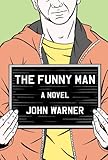 The Funny Man by John Warner: Warner, the managing editor of McSweeney’s Internet Tendency, delivers a satirical debut novel about a celebrity facing trial for manslaughter. The book centers on the exploits of the nameless “funny man,” who rises to stardom due to his ability to fit his entire hand in his mouth. Millions readers may know Warner from his running commentary — along with Kevin Guilfoile — of the Morning News’ Tournament of Books. Whether Warner’s own novel will compete in next year’s ToB remains to be seen. (Patrick)
The Funny Man by John Warner: Warner, the managing editor of McSweeney’s Internet Tendency, delivers a satirical debut novel about a celebrity facing trial for manslaughter. The book centers on the exploits of the nameless “funny man,” who rises to stardom due to his ability to fit his entire hand in his mouth. Millions readers may know Warner from his running commentary — along with Kevin Guilfoile — of the Morning News’ Tournament of Books. Whether Warner’s own novel will compete in next year’s ToB remains to be seen. (Patrick)
October:
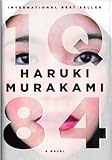 1Q84 by Haruki Murakami: After years of anticipation the US release of Murakami’s first novel in four years is just months away. Murakami’s three-volume stemwinder came out in Japan in 2009 where it sold out its first printing in a day and did more than a million copies in a month. The alpha-numeric title is a play on Orwell’s 1984 – in Japanese the letter Q is a homophonic with the number 9 – and the book’s plot (which was a tightly guarded secret prior to its Japanese release) concerns two characters, a PE teacher and a writer, who become involved in a religious cult through which they create “a mysterious past, different than the one we know.” (Kevin)
1Q84 by Haruki Murakami: After years of anticipation the US release of Murakami’s first novel in four years is just months away. Murakami’s three-volume stemwinder came out in Japan in 2009 where it sold out its first printing in a day and did more than a million copies in a month. The alpha-numeric title is a play on Orwell’s 1984 – in Japanese the letter Q is a homophonic with the number 9 – and the book’s plot (which was a tightly guarded secret prior to its Japanese release) concerns two characters, a PE teacher and a writer, who become involved in a religious cult through which they create “a mysterious past, different than the one we know.” (Kevin)
The Marriage Plot by Jeffrey Eugenides: For Eugenides fans, October is a long time coming. Nine years after the publication of Middlesex, The Marriage Plot (The Millions took an exclusive look at the first lines), will deal, in Eugenides’ own words with “religion, depression, the Victorian novel, and Roland Barthes” (also Mother Teresa). Unlike the multi-generational Middlesex, The Marriage Plot sticks close to 1982, following three college graduates as they wander around the Eastern Seaboard and Calcutta thinking about love and novels and one another. Eugenides has shown that he can work across material, space, time (and page length). As we move toward the publication date I anticipate a buzz frenzy, and I can’t wait. (Lydia)
 Boomerang: Travels in the New Third World by Michael Lewis: Already a well-known chronicler of Wall Street manias and interesting intersections of sports and ideas, Lewis catapulted to wide attention with his writing on the financial crisis that came to a head in late 2008. In the sweepstakes to write the definitive book on the collapse, Lewis’s The Big Short seemed to be the big winner. Perhaps less likely to become an economic thriller is the ongoing malaise of the aftermath — chronic unemployment, budget cuts, litigation. To keep the thread unspooling, Lewis now goes abroad, taking us around Europe on a travelogue of collapse — Iceland, Greece, Germany, Ireland — in an exploration of money-fueled madness and the hard choices that have followed. (Max)
Boomerang: Travels in the New Third World by Michael Lewis: Already a well-known chronicler of Wall Street manias and interesting intersections of sports and ideas, Lewis catapulted to wide attention with his writing on the financial crisis that came to a head in late 2008. In the sweepstakes to write the definitive book on the collapse, Lewis’s The Big Short seemed to be the big winner. Perhaps less likely to become an economic thriller is the ongoing malaise of the aftermath — chronic unemployment, budget cuts, litigation. To keep the thread unspooling, Lewis now goes abroad, taking us around Europe on a travelogue of collapse — Iceland, Greece, Germany, Ireland — in an exploration of money-fueled madness and the hard choices that have followed. (Max)
 The Stranger’s Child by Alan Hollinghurst: Hollinghurst’s last book, the Booker-winning The Line of Beauty, achieved what Philip Hensher meant to do with The Northern Clemency. That is, it combined lovely realist prose – among the best currently being written – with an acute portrait of Thatcherite England. In a just world, it would have made our Best of the Millennium Top 20. His new one goes deeper into the past, and in synopsis reads like a kind of World War I analogue to Atonement: infatuated teenagers, country estates, sibling rivalry, literature, war, and history. (Garth)
The Stranger’s Child by Alan Hollinghurst: Hollinghurst’s last book, the Booker-winning The Line of Beauty, achieved what Philip Hensher meant to do with The Northern Clemency. That is, it combined lovely realist prose – among the best currently being written – with an acute portrait of Thatcherite England. In a just world, it would have made our Best of the Millennium Top 20. His new one goes deeper into the past, and in synopsis reads like a kind of World War I analogue to Atonement: infatuated teenagers, country estates, sibling rivalry, literature, war, and history. (Garth)
 Cain by Jose Saramago: In Cain, his last novel, the late Nobel laureate Jose Saramago re-imagined the Old Testament through the eyes of Cain. Skimming through time and space, Saramago’s Cain witnesses some of the most harrowing events of the Bible, including the destruction of Sodom and Gomorrah, the battle of Jericho, and Noah’s construction of the ark on the eve of the flood. Translated by Margaret Jull Costa, the novel created a furor in the author’s native Portugal when he suggested that society would have better off if the Bible had never been written. (Bill)
Cain by Jose Saramago: In Cain, his last novel, the late Nobel laureate Jose Saramago re-imagined the Old Testament through the eyes of Cain. Skimming through time and space, Saramago’s Cain witnesses some of the most harrowing events of the Bible, including the destruction of Sodom and Gomorrah, the battle of Jericho, and Noah’s construction of the ark on the eve of the flood. Translated by Margaret Jull Costa, the novel created a furor in the author’s native Portugal when he suggested that society would have better off if the Bible had never been written. (Bill)
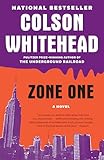 Zone One by Colson Whitehead: In the aftermath of a world-wide pandemic that has sorted humanity into two types – the living and the living dead – American society is trying to rebuild under orders from a provisional government based in Buffalo, New York. Their principal mission is the resettlement of Manhattan, where government forces hold the neighborhoods south of Canal Street, known as Zone One, but must battle pockets of plague-ridden squatters living uptown to retake the rest of the island. Whitehead, who began his career with The Intuitionist, the world’s greatest novel of elevator repair, now directs his wry, pop-culture-saturated sensibility toward a new kind of post-9/11 novel about zombies, apocalypse, and New York real estate. (Michael)
Zone One by Colson Whitehead: In the aftermath of a world-wide pandemic that has sorted humanity into two types – the living and the living dead – American society is trying to rebuild under orders from a provisional government based in Buffalo, New York. Their principal mission is the resettlement of Manhattan, where government forces hold the neighborhoods south of Canal Street, known as Zone One, but must battle pockets of plague-ridden squatters living uptown to retake the rest of the island. Whitehead, who began his career with The Intuitionist, the world’s greatest novel of elevator repair, now directs his wry, pop-culture-saturated sensibility toward a new kind of post-9/11 novel about zombies, apocalypse, and New York real estate. (Michael)
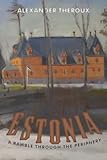 Estonia: A Ramble Through the Periphery by Alexander Theroux: When Theroux, a poet and author of Darconville’s Cat, decided to accompany his wife on her Fulbright Scholarship to Estonia, he began nine months of exploration into a culture and people wholly unknown to him. Theroux has described his writing as a “Victorian attic,” assorted ideas and tangents all crammed together, and indeed his encounters with Estonian customs and history get him talking about everything from Hamlet to Married…With Children, with his trademark whimsy and wit. (Janet)
Estonia: A Ramble Through the Periphery by Alexander Theroux: When Theroux, a poet and author of Darconville’s Cat, decided to accompany his wife on her Fulbright Scholarship to Estonia, he began nine months of exploration into a culture and people wholly unknown to him. Theroux has described his writing as a “Victorian attic,” assorted ideas and tangents all crammed together, and indeed his encounters with Estonian customs and history get him talking about everything from Hamlet to Married…With Children, with his trademark whimsy and wit. (Janet)
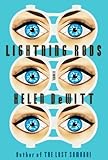 Lightning Rods by Helen DeWitt: A manuscript’s difficulty finding its way into print is often attributed to its insufficiency and, less frequently but with greater cachet, its genius. Helen Dewitt’s work falls into the latter category–it’s as if her luck with publishing has been diminished in proportion to the magnitude of her literary feat. Her first novel, The Last Samurai, was hailed as one of the best debut novels of the aughts, and yet she briefly resorted to self-publishing her next book. (Even so, it was reviewed in the LRB.) Lightning Rods, her second novel, has waited ten years in the wings. If The Last Samurai’s focus was genius, this one is a failure’s drive to succeed. In the Mel Brooksian corporate satire, a failed salesman channels sexual fantasies into a business–and strikes gold–dealing with workplace sexual harassment. (Anne)
Lightning Rods by Helen DeWitt: A manuscript’s difficulty finding its way into print is often attributed to its insufficiency and, less frequently but with greater cachet, its genius. Helen Dewitt’s work falls into the latter category–it’s as if her luck with publishing has been diminished in proportion to the magnitude of her literary feat. Her first novel, The Last Samurai, was hailed as one of the best debut novels of the aughts, and yet she briefly resorted to self-publishing her next book. (Even so, it was reviewed in the LRB.) Lightning Rods, her second novel, has waited ten years in the wings. If The Last Samurai’s focus was genius, this one is a failure’s drive to succeed. In the Mel Brooksian corporate satire, a failed salesman channels sexual fantasies into a business–and strikes gold–dealing with workplace sexual harassment. (Anne)
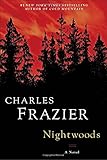 Nightwoods by Charles Frazier: Writers, like jockeys, are advised to remount immediately after getting thrown from their mounts. After his smash 1997 debut, Cold Mountain, which won the National Book Award, Charles Frazier stumbled his second time out with Thirteen Moons, a critical and popular flop. Now he comes right back with Nightwoods, set in 1950s North Carolina, where a lonely woman named Luce cares for her murdered sister Lily’s twins while the dead woman’s husband – and acquitted killer – comes looking for money he’s sure Lily has hidden. One early reader has said that these elements result, surprisingly, in a book that’s less a thriller than an intense character study. (Bill)
Nightwoods by Charles Frazier: Writers, like jockeys, are advised to remount immediately after getting thrown from their mounts. After his smash 1997 debut, Cold Mountain, which won the National Book Award, Charles Frazier stumbled his second time out with Thirteen Moons, a critical and popular flop. Now he comes right back with Nightwoods, set in 1950s North Carolina, where a lonely woman named Luce cares for her murdered sister Lily’s twins while the dead woman’s husband – and acquitted killer – comes looking for money he’s sure Lily has hidden. One early reader has said that these elements result, surprisingly, in a book that’s less a thriller than an intense character study. (Bill)
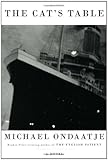 The Cat’s Table by Michael Ondaatje: Michael Ondaatje’s publisher, Ellen Seligman, has called his sixth novel “perhaps Ondaatje’s most thrilling and moving novel to date.” The Cat’s Table is set sixty years ago; a young boy, for reasons that are initially mysterious, is leaving the country that was then called Ceylon—the only home he’s ever known—and being sent to England. On board the Oronsay, “the first and only ship of his life,” he falls in with two fellow travelers of about his age. It’s a long voyage, involving the Indian Ocean, Red Sea, Mediterranean and Atlantic, and the three boys—virtually abandoned by their caregivers, ignored by ship’s officials—become close friends. Kirkus called the book “[e]legiac, mature and nostalgic—a fine evocation of childhood, and of days irretrievably past.” (Emily M.)
The Cat’s Table by Michael Ondaatje: Michael Ondaatje’s publisher, Ellen Seligman, has called his sixth novel “perhaps Ondaatje’s most thrilling and moving novel to date.” The Cat’s Table is set sixty years ago; a young boy, for reasons that are initially mysterious, is leaving the country that was then called Ceylon—the only home he’s ever known—and being sent to England. On board the Oronsay, “the first and only ship of his life,” he falls in with two fellow travelers of about his age. It’s a long voyage, involving the Indian Ocean, Red Sea, Mediterranean and Atlantic, and the three boys—virtually abandoned by their caregivers, ignored by ship’s officials—become close friends. Kirkus called the book “[e]legiac, mature and nostalgic—a fine evocation of childhood, and of days irretrievably past.” (Emily M.)
Parallel Stories by Péter Nadás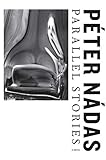 Okay, so Parallel Stories is not actually the longest novel ever written. But at 1,150 pages, it’s damn close. It took Nádas decades to write – and Imre Goldstein who knows how long to translate. So it’s pretty much an assured thing that this won’t sell like FSG’s previous venture into 1,000-page novels in translation, 2666. But the excerpt that ran in The Paris Review last year was a stunner. Nadas is one of the few contemporary novelists capable of producing masterpieces; his last novel to appear in English, A Book of Memories (no beach read itself), was one. Has he done it again? (Garth)
Okay, so Parallel Stories is not actually the longest novel ever written. But at 1,150 pages, it’s damn close. It took Nádas decades to write – and Imre Goldstein who knows how long to translate. So it’s pretty much an assured thing that this won’t sell like FSG’s previous venture into 1,000-page novels in translation, 2666. But the excerpt that ran in The Paris Review last year was a stunner. Nadas is one of the few contemporary novelists capable of producing masterpieces; his last novel to appear in English, A Book of Memories (no beach read itself), was one. Has he done it again? (Garth)
 The Forgotten Waltz by Anne Enright: As the Celtic Tiger was morphing into a toothless pussycat during the past decade, so the adulterous Irish lovers in Booker Prize-winner Anne Enright’s fifth novel, The Forgotten Waltz, find themselves spiraling from apparent marital success into the confusions of its ruined aftermath. The married adulterers are Gina Moynihan, a successful, strong-willed IT professional, and brooding Sean Vallely. “The whole project is about failure,” Gina says of adultery. “It has failure built in.” Enright has written a novel that is, in one British reviewer’s opinion, “the opposite of chicklit.” (Bill)
The Forgotten Waltz by Anne Enright: As the Celtic Tiger was morphing into a toothless pussycat during the past decade, so the adulterous Irish lovers in Booker Prize-winner Anne Enright’s fifth novel, The Forgotten Waltz, find themselves spiraling from apparent marital success into the confusions of its ruined aftermath. The married adulterers are Gina Moynihan, a successful, strong-willed IT professional, and brooding Sean Vallely. “The whole project is about failure,” Gina says of adultery. “It has failure built in.” Enright has written a novel that is, in one British reviewer’s opinion, “the opposite of chicklit.” (Bill)
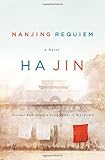 Nanjing Requiem by Ha Jin: For his sixth novel, Ha Jin, author of Waiting and War Trash, recreates one of the most horrific incidents of the Second Sino-Japanese War. Nanjing Requiem re-imagines the Japanese occupation of that city in 1937 through the eyes of a fictional narrator named Anling Gao, and the remarkable work of the real-life missionary Minnie Vautrin, who sheltered more than 10,000 Chinese women and children in Jinling Women’s College. Readers of Iris Chang’s controversial nonfiction book, The Rape of Nanking, will know much of the story, but Publishers Weekly has called Jin’s novel “a convincing, harrowing portrait of heroism in the face of brutality.” (Bill)
Nanjing Requiem by Ha Jin: For his sixth novel, Ha Jin, author of Waiting and War Trash, recreates one of the most horrific incidents of the Second Sino-Japanese War. Nanjing Requiem re-imagines the Japanese occupation of that city in 1937 through the eyes of a fictional narrator named Anling Gao, and the remarkable work of the real-life missionary Minnie Vautrin, who sheltered more than 10,000 Chinese women and children in Jinling Women’s College. Readers of Iris Chang’s controversial nonfiction book, The Rape of Nanking, will know much of the story, but Publishers Weekly has called Jin’s novel “a convincing, harrowing portrait of heroism in the face of brutality.” (Bill)
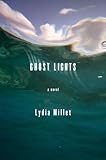 Ghost Lights by Lydia Millet: Lydia Millet is delightfully promiscuous in her range of social critique–she deftly shifts from satirizing popular culture in stories that depict celebrities alongside animals (Love in Infant Monkeys), to considering the implications of the atom bomb (Oh Pure and Radiant Heart), to voicing deep ecological concerns. Her latest novel, Ghost Lights, is the second in a trilogy focused on extinction, that began with How the Dead Dream. Ghost Lights revolves around domestic unrest fueled by a man’s discovery of his wife’s infidelity. He soon sets off on his own journey to track down her boss who disappeared in the jungles of Belize. Millet’s preoccupation with “relationship of the individual self to society and the social self, and morality” promises to frame this adventure tale within a harder-hitting conceit. (Anne)
Ghost Lights by Lydia Millet: Lydia Millet is delightfully promiscuous in her range of social critique–she deftly shifts from satirizing popular culture in stories that depict celebrities alongside animals (Love in Infant Monkeys), to considering the implications of the atom bomb (Oh Pure and Radiant Heart), to voicing deep ecological concerns. Her latest novel, Ghost Lights, is the second in a trilogy focused on extinction, that began with How the Dead Dream. Ghost Lights revolves around domestic unrest fueled by a man’s discovery of his wife’s infidelity. He soon sets off on his own journey to track down her boss who disappeared in the jungles of Belize. Millet’s preoccupation with “relationship of the individual self to society and the social self, and morality” promises to frame this adventure tale within a harder-hitting conceit. (Anne)
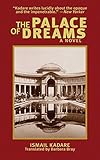 The Palace of Dreams by Ismail Kadare: Ismail Kadare’s Palace of Dreams, widely regarded as a modern classic, was banned in Albania almost immediately upon its publication in 1981. While Kadare is one of the better-known Eastern European novelists in the West, his work is still relatively obscure and this re-publication is overdue. Critics often invoke Orwell or Kafka or Escher to describe the quality of the book, which offers an imagined version of the nineteenth-century Ottoman Empire in which the dreams of the populace are gathered, transcribed, and interpreted by the Sultan and used to formulate policy and control the populace. (Emily W.)
The Palace of Dreams by Ismail Kadare: Ismail Kadare’s Palace of Dreams, widely regarded as a modern classic, was banned in Albania almost immediately upon its publication in 1981. While Kadare is one of the better-known Eastern European novelists in the West, his work is still relatively obscure and this re-publication is overdue. Critics often invoke Orwell or Kafka or Escher to describe the quality of the book, which offers an imagined version of the nineteenth-century Ottoman Empire in which the dreams of the populace are gathered, transcribed, and interpreted by the Sultan and used to formulate policy and control the populace. (Emily W.)
Nothing: A Portrait of Insomnia by Blake Butler: “Bad sugar fuels fucked dreams,” and fucked dreams are something Blake Butler’s become accustomed to, or hasn’t–as he’s prone to chronic bouts of insomnia. For a writer whose fictions often access the surreal, it’s fitting that his first book of nonfiction considers, among other things, sleep and dreams and his nightly battle to access this state. While dreams are well-trodden territory for creative types, the borders and barriers between sleep and dreams, the slippery in-between, and being shut out of the promised land, are less often considered. For a delicious glimpse of the ways Butler maps insomnia, see his “Insomnia Door.” (Anne)
November:
The Angel Esmeralda: Nine Stories by Don DeLillo: The first ever collection of short stories by Delillo, these nine were written between 1979 and 2011. Not much info has been released, but this bibliography gives a rundown of the stories that will comprise part or most of the collection. (Sonya)
 11/22/63l by Stephen King: For years Stephen King has been talking about writing a novel based around time-travel. This November it arrives. The date that serves as the book’s title is the day of John F. Kennedy’s assassination; the story concerns 35-year-old Jake Epping who discovers a time portal in a diner in his hometown in Maine and travels back to 1958, which gives him five years to figure out a way to prevent Lee Harvey Oswald (or whoever it was) from taking his fateful shot. This spring Scribner released an excerpt from the book, which has the protagonist contemplating murdering Oswald. “Even if you do have to kill him, you don’t have to do it right away.” (Kevin)
11/22/63l by Stephen King: For years Stephen King has been talking about writing a novel based around time-travel. This November it arrives. The date that serves as the book’s title is the day of John F. Kennedy’s assassination; the story concerns 35-year-old Jake Epping who discovers a time portal in a diner in his hometown in Maine and travels back to 1958, which gives him five years to figure out a way to prevent Lee Harvey Oswald (or whoever it was) from taking his fateful shot. This spring Scribner released an excerpt from the book, which has the protagonist contemplating murdering Oswald. “Even if you do have to kill him, you don’t have to do it right away.” (Kevin)
The Prague Cemetery by Umberto Eco: Last October, while Americans were transfixed by House campaigns, The Social Network, and Brian Wilson’s beard, Italy was swept up in literary controversy. Umberto Eco’s The Prague Cemetery, published that month, followed “the most hateful man in the world”—a fictitious anti-Semitic forger responsible for The Protocols of the Elders of Zion. The Vatican’s Osservatore Romano, among others, charged Eco with unwitting hate speech: “Forced to read disgusting things about the Jews, the reader remains tainted by this anti-Semitic nonsense.” Unsurprisingly, the fracas propelled The Prague Cemetery to European bestseller status; the book’s forthcoming English translation may run a similar course. (Jacob)
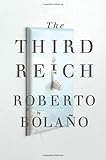 The Third Reich by Roberto Bolaño: A posthumous examination of Bolaño’s papers revealed the text of The Third Reich, a short novel written in 1989. A German war-game champion, Udo Berger, takes his girlfriend Ingeborg on vacation to the Spanish coastal town where he summered during his childhood. They meet another German couple on vacation, Charly and Hanna, and a group of locals. Charly disappears one night without a trace, and when Hanna and Ingeborg return to their lives in Germany, Udo refuses to leave the resort hotel. He quickly finds himself caught up in a round of Third Reich, an elaborate board game that pits him against El Quemado, a mysterious man from South America who rents paddle boats to tourists on the beach. (Emily M.)
The Third Reich by Roberto Bolaño: A posthumous examination of Bolaño’s papers revealed the text of The Third Reich, a short novel written in 1989. A German war-game champion, Udo Berger, takes his girlfriend Ingeborg on vacation to the Spanish coastal town where he summered during his childhood. They meet another German couple on vacation, Charly and Hanna, and a group of locals. Charly disappears one night without a trace, and when Hanna and Ingeborg return to their lives in Germany, Udo refuses to leave the resort hotel. He quickly finds himself caught up in a round of Third Reich, an elaborate board game that pits him against El Quemado, a mysterious man from South America who rents paddle boats to tourists on the beach. (Emily M.)
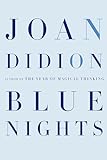 Blue Nights by Joan Didion: America’s most astringent commentator on life and politics in the Postwar Era turns her gimlet eye on the subjects of aging, parenthood, and loss in the wake of the death of her daughter, Quintana Roo Dunne. Billed as a sequel of sorts to Didion’s best-selling memoir, The Year of Magical Thinking, about the sudden death of her husband, John Gregory Dunne, this new book explores the fresh hell of her daughter’s 2005 death from a massive hematoma while Didion was on tour touting the book about her husband’s death. Now well into her 70s, Didion examines her successes and failures as a parent and meditates on the tragic fragility of life in a world where even six hours of emergency surgery cannot save her 39-year-old daughter from a burst blood vessel. (Michael)
Blue Nights by Joan Didion: America’s most astringent commentator on life and politics in the Postwar Era turns her gimlet eye on the subjects of aging, parenthood, and loss in the wake of the death of her daughter, Quintana Roo Dunne. Billed as a sequel of sorts to Didion’s best-selling memoir, The Year of Magical Thinking, about the sudden death of her husband, John Gregory Dunne, this new book explores the fresh hell of her daughter’s 2005 death from a massive hematoma while Didion was on tour touting the book about her husband’s death. Now well into her 70s, Didion examines her successes and failures as a parent and meditates on the tragic fragility of life in a world where even six hours of emergency surgery cannot save her 39-year-old daughter from a burst blood vessel. (Michael)
 Dante in Love by A.N. Wilson: Touted as “a lively introduction to The Divine Comedy” as well as “biography as done by a novelist at the height of his powers,” A.N. Wilson’s Dante in Love aims to give the lay reader all the biographical and historical context she’d need to make the most of the Comedia. Other British reviewers (who’ve had first crack at it; it’s already out across the pond) have found the book wanting: ponderous in its erudition and labyrinthine in its organization. (Emily W.)
Dante in Love by A.N. Wilson: Touted as “a lively introduction to The Divine Comedy” as well as “biography as done by a novelist at the height of his powers,” A.N. Wilson’s Dante in Love aims to give the lay reader all the biographical and historical context she’d need to make the most of the Comedia. Other British reviewers (who’ve had first crack at it; it’s already out across the pond) have found the book wanting: ponderous in its erudition and labyrinthine in its organization. (Emily W.)
Gathering Evidence: A Memoir by Thomas Bernhard: Thomas Bernhard, the lit world’s favorite misanthrope, showed little discretion in dispersing his contempt. He hated his homeland, Austria, where he banned the posthumous publication of his works; he hated books and articles that began chronologically, with a date of birth; he despised “sinister” nature and the countryside where he was forced to live due to his poor health, and even literary prizes, which he compared receiving to “having one’s head pissed upon.” If you wonder at the sources of his cantankerousness and great despair, his five-volume memoir, Gathering Evidence, coming back into print in a paperback edition, contains an exacting ledger. From a father who didn’t acknowledge him, to bombing raids and involvement with Hitler youth, to contracting tuberculosis and his chronic convalescence in sanitariums, there’s much to lament but also great beauty in the devastation. (Anne)
Adam and Evelyn by Ingo Schulze: Since getting the New Yorker treatment in the ’90s, the German novelist Ingo Schulze has fallen into unjust neglect in the U.S. His great epistolary novel, New Lives and his 2009 collection One More Story were perhaps too subtle in their ironies to find a broad American readership, while not being subtle enough for the critic who gave them the most attention. But Schulze’s work stays with you, if you stay with it. Adam and Evelyn is something of a departure – a comic love story, and a retelling of the Fall. It continues, however, Schulze’s effort to define a post-Iron Curtain literary sensibility, drawing equally from East and West. (Garth)
December:
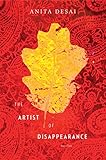 The Artist of Disappearance by Anita Desai: A collection of three novellas, The Artist of Disappearance is Anita Desai’s latest examination of Indian society—its wealth, its poverty, and the ways in which its culture permeates its daily life. Americans have been taught to view India with a mixture of awe and foreboding, as a source of exotica and our own economic displacement. But Desai reminds us that real people live there, with fears and desires at once specific and universal. In a world of Outsourced caricature, her characters are drawn with a much-needed precision. (Jacob)
The Artist of Disappearance by Anita Desai: A collection of three novellas, The Artist of Disappearance is Anita Desai’s latest examination of Indian society—its wealth, its poverty, and the ways in which its culture permeates its daily life. Americans have been taught to view India with a mixture of awe and foreboding, as a source of exotica and our own economic displacement. But Desai reminds us that real people live there, with fears and desires at once specific and universal. In a world of Outsourced caricature, her characters are drawn with a much-needed precision. (Jacob)
Triptych: How to Look at Francis Bacon by Jonathan Littel: Jonathan Littell, French-American bad boy author of the middling cyberpunk novel Bad Voltage and the controversial, hefty, first-person Nazi confessional novel The Kindly Ones, celebrated in France but—quel surprise—less loved here, is back: This time around, he’s trying his hand at art history. With his apparent taste for the gruesome and atrocious (see The Kindly Ones), Littell may be just the man to have a go at the squeamish-making work of Francis Bacon. (Emily W.)
January 2012:
 The Recognitions by William Gaddis: Mr. Difficult’s classic ur-post-modern novel, first published in 1955 and returning in a new edition from Dalkey Archive, is not for the faint of heart (Gaddis himself described his work as “not reader friendly”). Notoriously difficult in all of the ways postmods are (allusive, dense, multi-plot, hyper-intellectual, long, rich in unmarked dialogue), The Recognitions is also regarded as one of the great American books of the last century. It charts the travails of aspiring artist Wyatt Gwyon, who makes exquisite forgeries of the Dutch masters—paintings so true to the originals that they’re indistinguishable from them. Gwyon’s plot is, of course, entangled in those of many other lives and the novel is acutely interested in figuring out what authenticity, forgery, plagiarism, and originality mean in the post-war, post-modern age. (Emily W.)
The Recognitions by William Gaddis: Mr. Difficult’s classic ur-post-modern novel, first published in 1955 and returning in a new edition from Dalkey Archive, is not for the faint of heart (Gaddis himself described his work as “not reader friendly”). Notoriously difficult in all of the ways postmods are (allusive, dense, multi-plot, hyper-intellectual, long, rich in unmarked dialogue), The Recognitions is also regarded as one of the great American books of the last century. It charts the travails of aspiring artist Wyatt Gwyon, who makes exquisite forgeries of the Dutch masters—paintings so true to the originals that they’re indistinguishable from them. Gwyon’s plot is, of course, entangled in those of many other lives and the novel is acutely interested in figuring out what authenticity, forgery, plagiarism, and originality mean in the post-war, post-modern age. (Emily W.)
The Map and the Territory by Michel Houellebecq: Michel Houellebecq, the reigning bad boy of French letters, has been accused of every imaginable sin against political correctness. His new novel, The Map and the Territory, is a send-up of the art world that tones down the sex and booze and violence, but it does feature a “sickly old tortoise” named Michel Houellebecq who gets gruesomely murdered. The book has drawn charges of plagiarism because passages were lifted virtually verbatim from Wikipedia. “If people really think that (this is plagiarism),” Houellebecq sniffed, “then they haven’t the first notion what literature is.” Apparently, he does. The Map and the Territory was awarded the Prix Goncourt, France’s most prestigious literary prize. (Bill)
The Flame Alphabet by Ben Marcus: Ben Marcus, who is best known for his experimental, language-driven fiction, and for editing the oft-assigned anthology The Anchor Book of New American Short Stories, has a new novel, The Flame Alphabet. In an interview with HTMLGIANT, Marcus said the book is about “a husband and wife who are sickened by the speech of their daughter. Literally. So sickened that they have to leave her.” The novel is apparently a chronological narrative told by a single character; in the same interview, Marcus admitted that it’s “…formally a lot simpler than my other books, and it felt entirely new to me when I wrote it. I’ve never written a single book-length narrative that has a clear plot. I loved being in such strange waters.” (Edan)
Zona: A Book About a Film About a Journey to a Room by Geoff Dyer: Geoff Dyer’s books are never quite what they first seem. Out of Sheer Rage began as a critical study of D.H. Lawrence and became a vehicle for a wonderfully digressive account of avoidance that James Wood called “a work of delicious, stunned truancy.” Dyer’s novel Jeff in Venice, Death in Varanasi documents its real-life foundations in visits to the Venice Biennial. The two narratives themselves straddle extremes, the first a devotion to aesthetics, excess, and ennui, and the second, to self-denial and dissolution of the ego. And so while Dyer’s forthcoming Zona’s subject is Andrei Tarkovsky’s film Stalker, he strays–of course–from convention to discuss European film and realizing one’s deepest wishes, among other grander and lesser things. With Dyer at the helm there’s no telling where he’ll go, but it’s generally advisable to follow his lead. (Anne)
The Sense of an Ending by Julian Barnes: Three-time Man Booker shortlister Julian Barnes has written a new novel, the first since Arthur & George was published in 2005. According to Barnes’ website, The Sense of an Ending is a middle-aged man’s retroactive search for truth about his time as a member of “sex-hungry and book-hungry” adolescent crew, one of whose members meets an untimely end. The title–certainly a nod to Frank Kermode’s classic work of literary theory–suggests that Barnes, true to fashion, will apply the theories of literature to private life, hopefully with the same panache of his earlier novels. (Lydia)
February 2012:
Stay Awake by Dan Chaon: With the publication of his first two novels, You Remind Me of Me and Await Your Reply, Dan Chaon has gained a wider reading audience and a reputation for character-driven narratives shot through with a sinister darkness. Readers who discovered Chaon through his short stories will be delighted to see him return to the form with his latest collection, Stay Awake, his first collection since Among the Missing, which was nominated for the National Book Award in 2001. The jacket copy promises: “In these haunting, suspenseful stories, lost, fragile, searching characters wander between ordinary life and a psychological shadowland. They have experienced intense love or loss, grief or loneliness, displacement or disconnection—and find themselves in unexpected, dire, and sometimes unfathomable situations.” Sounds like good-old Dan Chaon to me. Don’t expect to be uplifted, but count on being moved, discomfited, and, certainly, impressed. (Edan)
March 2012:
Hot Pink by Adam Levin: Adam Levin’s gigantic first novel, The Instructions, made a splashy, panache-y debut in 2010, blowing lipfarts, flipping birds, and tipping hats in the direction of George Saunders and Philip Roth. Hot Pink collects nine stories in the same inventive vein. (Garth)
Arcadia by Lauren Groff: Arcadia by Lauren Groff tracks the life of Bit Stone, a man who grows up in an agrarian utopian commune in central New York that falls apart, as they generally do. Groff says, “I was interested in how a person who’d been born and raised in such an idealistic environment would adapt to the larger world–in all of the accounts I’ve read about communalist experiments gone wrong, the children are the silent suffering ones.” Groff, the author of the bestselling novel The Monsters of Templeton and the story collection Delicate Edible Birds, is already garnering strong praise for Arcadia. Richard Russo says, “Richly peopled and ambitious and oh, so lovely, Lauren Groff’s Arcadia is one of the most moving and satisfying novels I’ve read in a long time. It’s not possible to write any better without showing off.” (Edan)
April 2012:
When I Was a Child I Read Books: Essays by Marilynne Robinson: “When I was a child I read books,” writes Robinson, “My reading was not indiscriminate. I preferred books that were old and thick and dull and hard…I looked to Galilee for meaning and to Spokane for orthodonture, and beyond that the world where I was I found entirely sufficient.” The exalted author of Gilead and Home claims that the hardest work of her life has been convincing New Englanders that growing up in Idaho was not “intellectually crippling.” There, during her childhood, she read about Cromwell, Constantinople, and Carthage, and her new collection of essays celebrates the joy, and the enduring value, of reading. (Janet)
Night Film by Marisha Pessl: Fans of Pessl’s stylistic pyrotechnics in Special Topics in Calamity Physics will be disappointed to learn that the publication of her second novel, Night Film, has been delayed by a year. One wonders if the wunderkind is having a more difficult labor with baby number two—“a psychological thriller about obsession, family loyalty and ambition set in raw contemporary Manhattan” (so Pessl’s agent describes Night Film). As noted in the last Most Anticipated, Pessl’s Special Topics heroine, Blue van Meer, had a distinct, scintillating voice that it’ll be hard to match without imitating. (Emily W.)


